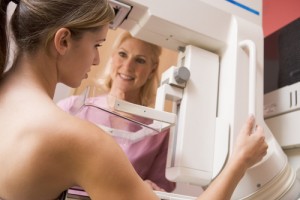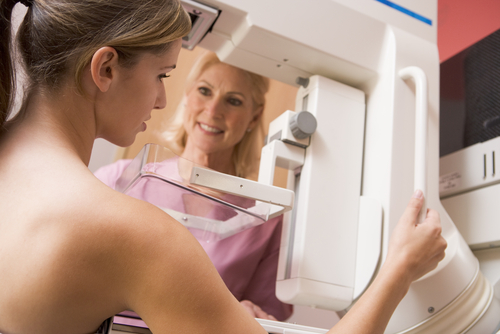 A recent study published in the Journal of the American Medical Association and sponsored by Hologic, a company that builds mammogram machines, suggests that 3D mammograms may detect breast cancer more accurately than regular scans, although the study doesn’t determine whether this means saving more lives.
A recent study published in the Journal of the American Medical Association and sponsored by Hologic, a company that builds mammogram machines, suggests that 3D mammograms may detect breast cancer more accurately than regular scans, although the study doesn’t determine whether this means saving more lives.
According to Lindsey Tanner to the Gainsville Sun, the study, also conducted by two members of the company’s scientific advisory board, Donna Plecha and Sarah Friedewald, considered a data set of half a million breast scans, where a third of the sample received recent 3D scans along with conventional ones, and the rest used conventional mammograms alone.
In their report, authors suggested that a 3D scan combo (Hologic’s equipment) detected one more cancer case per 1,000 scans when compared to conventional mammograms (5 in 1,000 compared to 4 in 1,000). Authors also said that they experienced 15% fewer false alarms on what seemed to be cancer but wasn’t.
Dr. Donna Plecha, a co-author and director of breast imaging at University Hospitals Case Medical Center in Cleveland, explained that 3D technology used in the study allowed physicians to detect “more invasive cancers earlier when they are easiest to treat and reduces unnecessary recalls for false alarms.”
The explanation for the diagnostic improvement may have to do with the type of images captured, since 3D scans “can take several images of each layers of the breasts,” helping doctors find hidden cancers “under breast tissue,” whereas conventional machines only take one image of each breast from two positions, according Jim Culley, spokesman for Hologic, to the Gainesville Sun.
Still, the study didn’t determine if the 3D scans meant better long-term results, involved higher costs (twice more than conventional mammogram machines according to MD Buyline, the source quoted on the article), and higher levels of radiation, even though in a “safe amount,” according to Culley.
[adrotate group=”1″]
3D scans may also not be available to everyone, considering they may have less insurance to cover the procedure.
The fact that the study doesn’t answer if 3D mammograms can save more lives, if the costs are higher, and if the amount of radiation is a concern raised some doubts for Dr. Gilbert Welch, a professor of Medicine at the Dartmouth Institute for Health Policy and Clinical Practice in New Hampshire. As quoted in the Gainsville Sun, he expressed a concern over whether the results are “likely to be overhyped, leading every hospital in the country to feel pressured to buy a new piece of expensive equipment and — to recoup their investment — pressure women to use it.”


